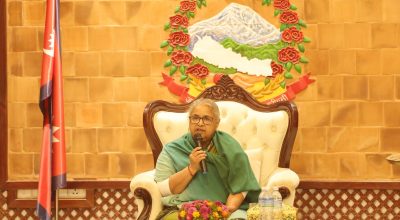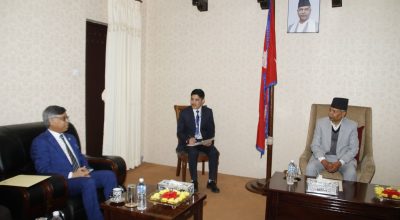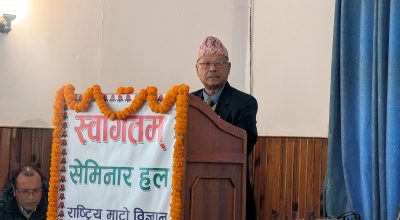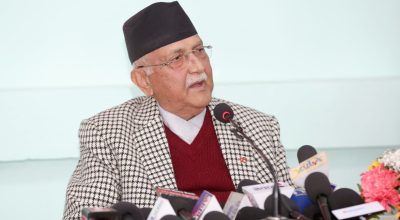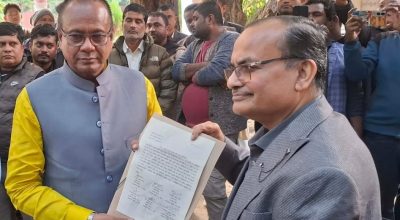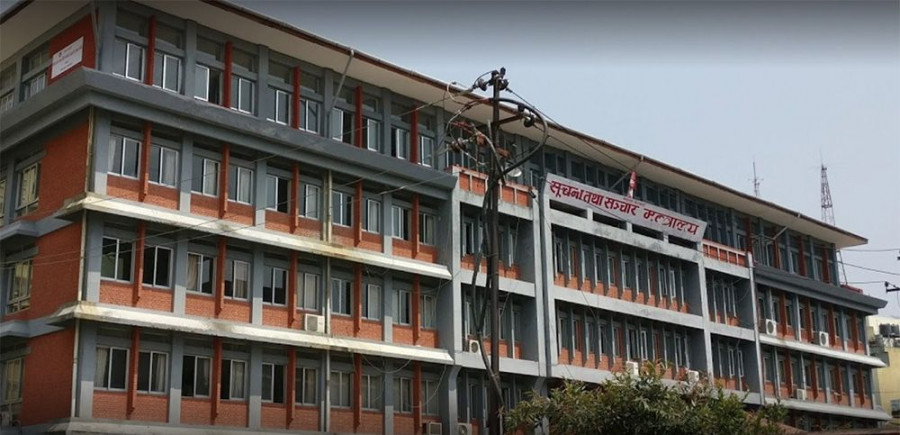
Thirty-eight percent of working journalists are at work without appointment letter, a study report shows.
According to the study of Minimum Wages Fixation Committee, appointment letter is still the issue of many journalists working in Nepali media enterprises.
The study incorporated 311 working journalists: 241 male, 69 female and one other from several districts including the Kathmandu Valley.
Among the respondents, 119 reported that media houses where they were working did not issue their appointment letters in the fiscal year 2077-78 BS (2020-21). Most of the complaints were from the TV journalists.
More, many communications enterprises do not mention about the working hours, annual leave and overtime provisions in the appointment letter, the study shows. .
The document titled ‘Working journalists-media study report-2078 BS’ suggests that issuing appointment letters for working journalists just for formality: for journalist to proceed for obtaining the Press Card and its renew is also the trend of Nepali media.
The Working Journalists Act, 2051 BS (first amendment 2064 BS) and Working Journalists Regulations, 2053 BS (first amendment 2065 BS) have legally protected the rights of working journalists.
The Act prohibits communications enterprises to engage any person in the functions of the post of working journalist without making appointment. Additionally, it requires the fulfillment of posts needed for any communications enterprise through an open competition in accordance with the prescribed procedures.
The Committee under the Ministry of Communication and Information Technology functions as the implementing and regulating body of the related laws. More, it is mandated to recommend and revise remunerations for journalists.
Committee president Rajendra Aryal said the media houses were not serious enough to provide the facilities stipulated by the related Act and Regulations. He described the overall condition of working journalists as becoming more pathetic after the post-COVID situation.
He added that the task force has been working to revise the remuneration of the working journalists and it would soon make the appropriate recommendations to the government in that connection.
The remuneration of working journalists in case of media houses is Rs 24 thousand 375 per month. This pay scale came into effect from September 17, 2018. The remuneration is revised every two years.
Committee member Nawaraj Mahatara, who was involved in the study, said 40 per cent of the respondents who participated in the survey expressed their ignorance regarding the related Regulations while 26 per cent of the respondents answered that they did not know about the pay determined by the government.
The Committee pointed out that there was problem in the implementation of the Working Journalists Act as the government has failed to execute the proportional advertisement policy and also not treated the self-employment and non-profit media and the commercial media equally. It has called on the government to take initiation for the implementation of the Act and Regulations even for the welfare of working journalists and the media houses.
The report was made public amidst a programme today. FNJ president Bipul Pokharel, Director General at the Department of Information and Broadcasting, Gogan Bahadur Hamal and the chiefs and representatives of various organisations and bodies related to the media participated in the programme.
The report shows that 70 percent of the journalists are deprived of annual pay raise, facilities under the Welfare Fund, disability facilities, medical treatment expenses, insurance, gratuity, festival expenses, overtime facilities and training and leave opportunities.
The Committee is mandated to determine the minimum pay which the working journalists are entitled to under the related Act and Regulations, to make the necessary recommendations to the government to that regard, to consult with the sides concerned or take the views of the experts as per the need and to classify, according to the level, the posts of the working journalists in keeping with the type of work of the media house.
On the occasion, FNJ president Pokharel suggested investing more power to the Committee rather than abrogate it. He also stressed on effectively monitoring the implementation of the Act and Regulations.
Director General Hamal said the monitoring was not effective also due to the lack of human resources on the Committee. He called for amending the Act.
Advertisement Board chair Laxmn Humagain, Gorakhapatra Corporation chair Bishnu Subedi, Nepal Television’s chair Samir Jung Shah, Nepal Press Union president Badri Sigdel, Press Chautari Nepal’s senior vice-president Madhav Nepal, among the speakers expressed their respective commitments for the protection of the rights of the working journalists and the implementation of the Act.





